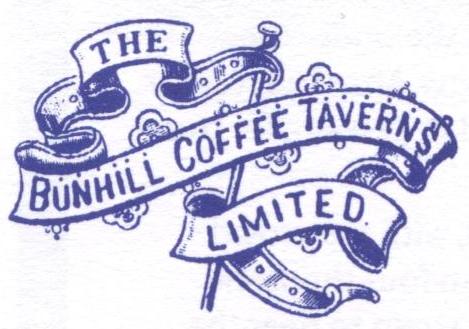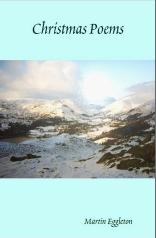Wesley's Chapel joint Meeting for Worship with the Bunhill Society of Friends - 22nd October 2006
On behalf of the Methodists Jennifer Potter expressed her thanks to the Bunhill Quakers for their generous invitation and the opportunity to learn from each other as we seek to worship God more fully.

|
Methodist Worship and the role of hymns and hymn-singing
By Jennifer Potter |
So much of our patterns of worship are the result of accidents of time and place. New branches of Christianity, such as Quakerism and Methodism, developed at particular times in history and responded to the mood of the time, often by reacting to what other Christians had done or were doing. For those new branches of Christianity which had charismatic leadership like Fox and Wesley - the temperament and ideas of those leaders were also an enormous formative influence.
John and Charles Wesley grew up as the children of Anglican parents. Their father was the Rector of the parish of Epworth in Lincolnshire. Both parents had returned to the Church of England, having grown up in families who had dissented from the Act of Uniformity in the 17th century. Samuel Annesley, John and Charles' maternal grandfather had been Rector of our local Parish Church, St Giles' Cripplegate, before being ejected.
So, as they grew up, the norm of worship for John and Charles were the usual Anglican services and especially the Eucharist or Holy Communion. They both went to study for the priesthood in Oxford. While there they banded together with a group of like-minded students in the Holy Club for regular prayer, Bible reading and social work such as visiting prisoners in the local jail. They were objects of fun for other students, who referred to them, in a less-than complementary was as 'methodists'; the name stuck and came to be used a badge of honour.
In their zeal for a closer relationship with God and a more personal and lively faith, John and Charles offered themselves for service in the North American colonies where they hoped to be able to minister both to the settlers and to the native Americans.
The freedom of the frontier allowed John to experiment a little - making adaptations to the liturgy and introducing variations in the psalms and hymns - changes that had not been authorised. These actions together with his difficulties with a certain young lady got John severely censured and he and also Charles for other reasons had to beat as hasty a retreat home from the colony of Georgia as the ships of the day would permit.
It was while in North America that John Wesley published his first collection of hymns, A Collection of Psalms and Hymns published in Charleston, South Carolina in 1737. This collection is eclectic and includes work of the Anglican poet/priest George Herbert, a selection of hymns from the Moravians who had so impressed the Wesleys, from Isaac Watts - a dissenter, from John Austin a Roman Catholic and contributions from Samuel Wesley Senior and his eldest son, also Samuel.
At this point we sang the first two verses of Isaac Watt's hymn
'I'll praise my maker while I've breath' (No 439) which was a favourite of John Wesley and was on his lips as he died.
Once back in Britain the Wesleys continued their link with the Moravians
and worshipped with them for some time in their Chapel in Fetter Lane, just
off Fleet Street. Singing was important to the Moravians and Wesley went to
learn more at Herrnhut in Germany one of their settlements. He continued to
translate their hymns from the German.
At this point we sang the first two verses of
August Gottlieb Spangenberg's
'What shall we offer our good Lord' (807)
However the parting of the ways with the Moravians came rather quickly over
the issue of quietism. The Moravians had an emphasis on stillness and
passivity, with which the Wesleys, with their much more activist approach
to faith, could not accept.
The Wesleys secured a lease on
disused cannon foundery just 200 yards to
the south of where the Chapel now stands. This is where all the emphases of
the Methodist movement developed over the next 40 years. It is helpful to
recall that at that time Methodism was a movement within the Anglican
Church. The people were grouped in 'societies' not churches or chapels.
Methodists were expected to attend the Parish Church every Sunday before
going on to Methodist worship. The legacy of that remains with Methodist
Service starting later at 11.00am. So the worship that went on in these
Methodist Societies was extra to the normal worship. There was preaching
and singing and the nurturing of fellowship - the bringing of people closer
to each other and closer to God as they journeyed on a communal pilgrimage
of faith.
At this point we sang the first two verses of 'All praise to our redeeming
Lord' (753) [This hymn had been a theme of the Holy Communion service at
Welsey's Chapel in the morning. It is reproduced here in full]
Until Isaac Watts came along and wrote a freer form of psalms and hymns,
the only singing that had been allowed in Anglican Churches had been
metrical psalms. After his heart-warming experience on
21st May 1738, three
days before his brother, John, had a similar experience, Charles Wesley
expressed his gratitude to God through his prolific hymn-writing. One of
the hymns that was an immediate fruit of this experience was 'Where shall
my wondering soul begin'.
At this point we sang the first two verses of 'Where shall my wondering
soul
begin' (706)
A stream of hymnbooks were produced by Charles for the congregation at the
Foundery, at the New Room in Bristol, at the Orphanage in Newcastle and in
the growing societies all around the country that developed as a result of
John's itinerant ministry on horseback and which he visited on a regular
basis.
There were 19 hymn books produced between
1739
and
1747
- some general and
some for specific days in the Christian calendar. Yet more were produced in
ensuing years including Hymns Occasioned by the Earthquake-Part I and Part
II in
1750
and Hymns on the Expected Invasion
1759. By the end of
the
period at the Foundery as they were preparing to move to the New Chapel in
City Road a new collection from all these books was being put together. So
in
1780
'A Collection of Hymns for the People called Methodists' was
published. This hymnbook reflected the spiritual journeys of John and
Charles as can be seen by the section headings.
For example in Part Four we have 'For Believers, Rejoicing, Fighting,
Praying, Watching, Working, Suffering, Groaning for full Redemption,
Brought to birth, Saved and Interceding for the World.
This Hymn Book was described by John Wesley as 'a little body of
experimental and practical divinity.' These hymns were sung in services and
class meetings but were also used for personal devotions.
|
John Wesley's Preface, dated London 20.10.1770
"It is not so large as to be either cumbersome, or expensive: and it is large enough to contain such a variety of hymns, as will not soon be worn threadbare. It is large enough to contain all the important truths of our most holy religion, whether speculative or practical; yea, to illustrate them all, and to prove them both by Scripture and reason: and this is done in a regular order. The hymns are not carelessly jumbled together, hut carefully ranged under proper heads, according to the experience of real Christians. So that this book is, in effect, a little body of experimental and practical divinity". |
At this point we sang verses from two of Charles' popular hymns that continue to be sung to the present day
'What shall I do my God to love' (46)
'And can it be that I should gain' (216)
What shall I do my God to love?
And can it be that I should gain
As the Wesleys parted company with the Moravians so did they with their friend and early fellow-worker, George Whitfield - the issue was predestination. John and Charles could not accept that a loving gracious God could predestine some of his children to salvation and some not. The controversy was waged through flysheets but also in hymns.
Charles was always at pains to stress the universal nature of God's love and grace, always awaiting the response of the sinner. In the next hymn we can note how often Charles uses the word 'all'.
At this point we sang the first and last verses of 'Father, Whose everlasting love' (520)
The influence of hymns on Methodism and the Methodist people can scarcely be exaggerated. Hymns were the means whereby theology entered the bloodstream of the people. People sang their faith.
Remarkably the hymns of Charles Wesley have lasted down the generations and are still sung now across denominations and around the world. Next year is the Tercentenary of Charles' birth when we shall remember with gratitude to God the contribution that he made to the Christian Church at large. There will be many celebration events which we hope you will join us for.
While the Methodist Hymn books that followed the 1780 edition included new hymns written both by Methodists and non-Methodists, there was no dominating figure like Charles.
However in recent years one Methodist minister came close to Charles in the relevance and theological rigour of his hymns. That minister was Fred Pratt Green who died in 2000. We will sing from two of his hymns, one which was chosen as the official hymn for the Queen's Silver Jubilee and the other which sums up much of what we have been saying about the role of music and hymn singing in worship.
At this point we sang the first two verses from the following hymns;
'It is God who holds the nation' (404)
'When in our music God is glorified' (388)
We have heard from Pratt Green, and we have our wonderful Elvis Pratt playing for us on the instrument and now we are going to conclude with a modern hymn by the minister, Andrew Pratt. He is a person who writes hymns about contemporary events and tries to make sense of our life in the 21st century.
At this point we sang verses from the hymn entitled Hurricane
The mingled tears of memory
Of present grief and fear,
Reminders for humanity
That death is always near.
The hurricane, the tidal wave,
The terrorist attack
That fracture faith, unsettle hope
Can cause belief to crack.
And so amid these mingled tears
We cling to those who care
And in the silence come to feel
The love of God is there.
And so, indeed, may we feel the love of God in the silence. Amen
 Top of
Page
Top of
Page
Andrew Roberts likes to hear from users:
To contact him, please
use the Communication
Form

North America 1737
- Psalms and hymns -
Moravians -
Heartwarming 1738 -
Foundery 1739 -
City Road and Hymns for
Methodists

Methodist minister, Martin Eggleton, writes poetry about today. Click on the picture of his book to find out more
|
29.7.1772: A letter from Mary Stokes (later Dudley) to her friend, John
Wesley, on attending Quaker Meetings on the Quaker Home Page
Mary Stokes born Bristol 8.6.1750. A member of the established church who became involved with Baptists, but then became a Methodist (part of the established church). Joined Quakers in 1773. Married Robert Dudley (Ireland) in 1777. After his death, moved to south London in 1810. Buried Bunhill 1823. November 1824: The life of Mary Dudley: including an account of her religious engagements and extracts from her letters |
